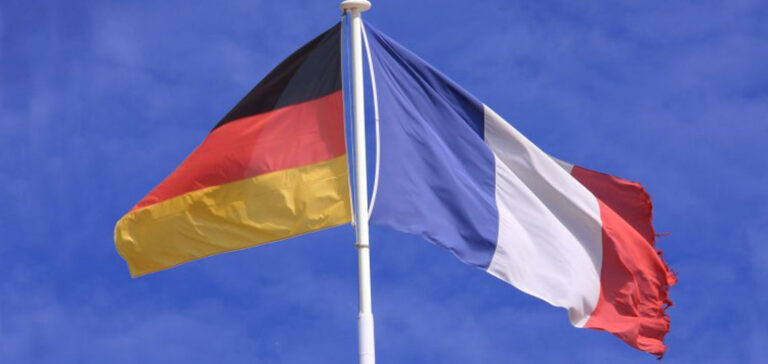The Franco-German conflict over Energy Strategy divides pro-nuclear France and Germany, which recently abandoned nuclear power. These two European powers disagree on how to meet energy challenges. Discussions between German Chancellor Olaf Scholz and French President Emmanuel Macron in Hamburg will be crucial in this respect.
Tensions linked to energy policy
Tensions over energy policy between the two countries are recurrent, but have taken on a new dimension with the European energy price crisis triggered by the invasion of Ukraine in February 2022. Gas price spikes have forced an initially hesitant Germany to support electricity market reform within the European Union (EU).
The objectives of this reform are clear: to reduce energy costs for households and businesses, guarantee a stable supply, and promote decarbonized energies to meet climate objectives. However, how this is to be achieved is a source of conflict between Paris and Berlin, fuelling underground discussions in Brussels.
Economic issues
The economic stakes are enormous. Increased competition from the United States confronts European industry. Moreover, Germany, where industry accounts for around 20% of GDP, is particularly vulnerable. EU energy ministers will meet on October 17 to try to reach a compromise, but the conclusion of the reform this year remains uncertain.
Nuclear power, a point of contention
French industry has long benefited from advantageous electricity tariffs. EDF, the operator of France’s 56 nuclear power plants, is legally obliged to sell part of its output at a reduced price. This obligation will come to an end in 2025, and France intends to take advantage of the reform of the European electricity market to maintain competitive tariffs.
One of the key elements of the reform proposed by the European Commission is the creation of long-term instruments such as “contracts for difference” (CFDs). These contracts would guarantee electricity producers a fixed price. If market prices fall below a defined range, the state would compensate producers. In the event of high market prices, the government could use surplus revenues to support households and businesses.
For France, it is essential that these CFDs also cover existing nuclear power plants, whether they are subject to investment to extend their lifespan or increase their capacity. Germany, on the other hand, is opposed to the idea, arguing that CFDs should not apply to installations that have already been depreciated. Berlin insists on promoting renewable energies and demands stricter control over the redistribution of CFD revenues.
In the background, France criticizes Germany for its prolonged dependence on Russian gas and the revival of its coal-fired power plants following the abandonment of nuclear power. Berlin suspects Paris of seeking an exception to favor its industry.
Towards a compromise?
Despite the differences, Emmanuel Macron expressed optimism that an agreement could be reached on electricity market reform. However, even if an agreement is reached by force, the conflicts between the two countries over energy influence all ongoing European negotiations. Germany wants to massively expand its electricity grids so that it can import more energy, while France is banking on energy sovereignty and domestic production.
France is also looking to use nuclear power to produce clean hydrogen, an idea to which Germany is reluctant. Discussions continue, and new challenges could arise, such as Germany’s plan to subsidize the price of industrial electricity to support businesses.
Ultimately, finding a workable compromise on these crucial energy issues will require careful thought and close cooperation between European nations.
Final Analysis
Energy policy in Europe, and in particular the differences between France and Germany, is at the heart of the debate. The energy crisis triggered by the invasion of Ukraine in 2022 has exacerbated existing tensions. Both countries face major economic challenges, including industrial competitiveness and climate objectives.
Nuclear power is a crucial point of contention. France seeks to maintain advantageous tariffs for nuclear power, while Germany favors renewable energies. Negotiations on Contracts for Difference (CFD) underline these differences.
Despite these challenges, France and Germany are optimistic that a compromise can be reached. However, energy issues are influencing all European discussions, with diverging views on power grids, energy sovereignty and national production.
In short, energy policy in Europe is a complex and crucial issue that requires close cooperation to achieve viable solutions.






















